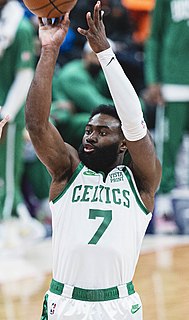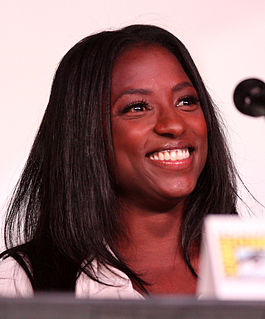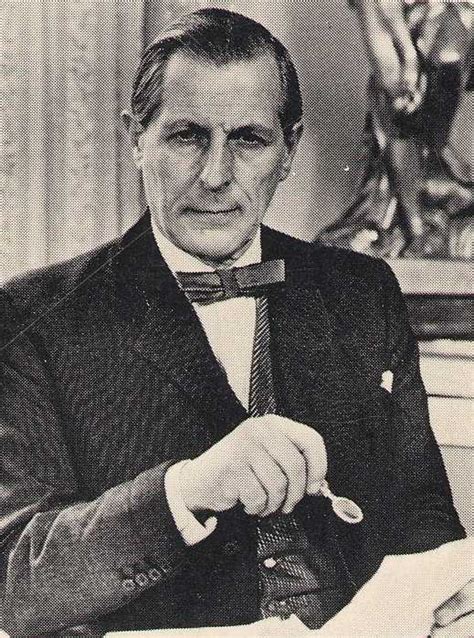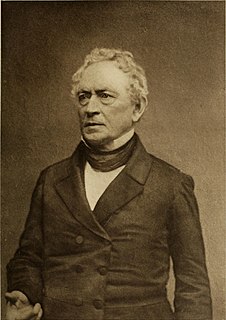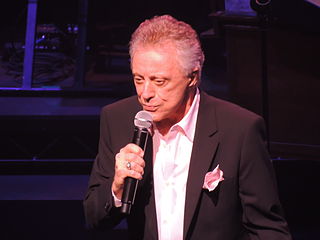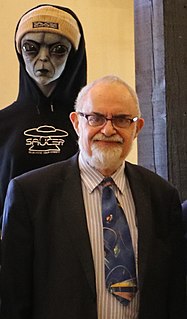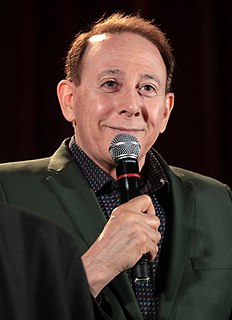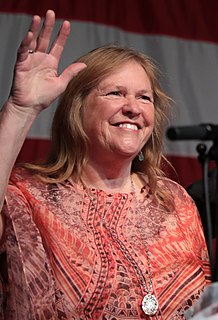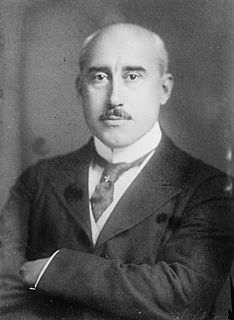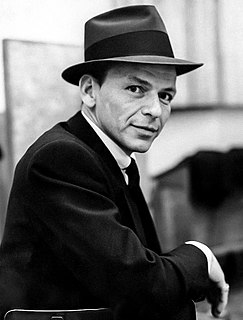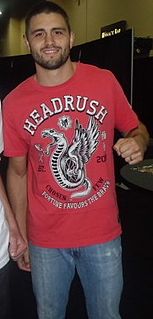Top 1200 Neighborhood Quotes & Sayings - Page 19
Explore popular Neighborhood quotes.
Last updated on November 17, 2024.
It's been rough for me trying to find my position in the struggle and where my voice is needed and helpful. You know, I grew up in Philadelphia, and Philadelphia has a really rough police-brutality history. I grew up in a neighborhood where it was very clear that the police were "them" and we were "us".
I grew up in my neighborhood with salsa, of course bachata, but also hip-hop, Nirvana - it was just like a mixed culture. It was a beautiful thing for me because at the moment I started creating music, having all these different sounds and elements, it was very organic because I grew up with all these types different music.
I definitely feel like you have an influence. I'm 21 years old, and I'm thinking about the kids that are from my neighborhood, from my community, that are looking up to me and seeing me handle myself a certain way, so I do feel a responsibility in that sense to handle myself a certain way in front of those guys.
It was a great place to grow up. There were always kids around in our neighborhood. We had a basketball hoop in the back of our house, a little front yard where you could get touch football games going. I know you think of it as a big city, but it was fun for me to grow up in New Orleans. I remember it as a very normal childhood.
Oh, no, I think I'd die on my own. I'd be so lonely. Even at home, I'm lonely. I sit in my room and sometimes cry. It is so hard to make friends, and there are some things you can't talk to your parents or family about. I sometimes walk around the neighborhood at night, just hoping to find someone to talk to. But I just end up coming home.
I grew up on welfare in the South Bronx; I had a very tough upbringing in that neighborhood. Reading books like The Four Agreements, A Return to Love, and The Power of Now helped me to overcome many internal battles. Had I not worked on myself, put value in myself, I would not have the loving and supportive people that I have right now in my life, including my husband and children
My cousin Jerry Lucey and five other firefighters died in a warehouse fire in Worcester, Mass. - my hometown - right in the middle of our old neighborhood downtown when a homeless couple started a fire to keep warm and the entire building went up. My cousin died trying to save homeless people who had already left the building.
In tracking down and eliminating terrorists, we need to change our metaphor from a "war on terror" - exactly what, pray tell, is that? - to the mind-set of Interpol tracking down master criminals through intense global cooperation among nations, or the FBI stalking the Mafia, or local police determined to quell street gangs without leveling the entire neighborhood in the process.
Children, pray for the good of everyone. We should pray to God to give a good mind even to those who harm us. One cannot sleep peacefully when there is a theif in the neighborhood. Likewise, when we pray for the well-being of others, it is we who gain peace and quietude. Children, the mantra 'Loka samasta sukhino bhavantu' should be chanted at least once daily.
I remembered staffing a volunteer table for ACT UP in San Francisco's Castro neighborhood in 1991, on the corner of Castro and 18th Street, and on my table were posters, stickers, and t-shirts that bore the same slogan in all caps - ACT UP slogan house style. I wore one of those shirts to model for passers-by.
Empathy and fellow feeling form the very basis of morality. The capacities for empathy, for feeling responsibility toward others and for reaching out to help them can be stunted or undermined early on, depending on a child's experiences in the home and neighborhood. It becomes too easy to turn our backs on fellow human beings... to have 'compassion fatigue.' Technology, we are learning, is not neutral.
The human race had always disgusted me. essentially, what made them disgusting was the family-relationship illness, which included marriage, exchange of power and aid, which neighborhood, your district, your city, your county, your state, your nation-everybody grabbing each other's assholes in the Honeycomb of survival out of a fear-animalistic stupidity.
Dad has worked as a banker at the same firm in Boston, living in the same suburban neighborhood for over 50 years. Later in life, when I got out of graduate school and imagined myself living the life of a writer like Hemingway or Kerouac, his practical self inevitably encouraged me to get a steady a job and raise a family, just like he did.
I think so much of my life had me growing up under extreme poverty and really challenging conditions, with having the police in my neighborhood and seeing the impact of over-incarceration. Having a father love up on me and remind of who I was, and my strength against those conditions, really shaped why I'm an organizer today.
Each week I pack my bag and travel the country, I go to people who write me and tell me their problems. I appear whether at their house or at their job site or some neighborhood gathering. I come there and listen to their story and I get hands on as I say. I don t give advice, I give people hope, I build their self-esteem, I motivate 'em. I inspire them because that's what I do.
When Catherine told me about this (tragedy nearby), I could only say, shocked, "Dear God, that family needs grace." She replied firmly, "That family needs casseroles," and then proceeded to organize the entire neighborhood into bringing that family dinner, in shifts, every single night, for an entire year. I do not know if my sister fully recognizes that this _is_ grace.
When I was 7, an old lady was driving too fast in my neighborhood and hit me with her car. I was running out of the house, and when I got halfway into the street, my mom saw the car and yelled for me to run back. As I turned around the car hit me, dragged me five houses down the road, and I fractured my collarbone.
Exercising during the cold and flu season will help people stay in shape, and most likely fight off colds or reduce the number of days a person is ill. The cold season should not be an excuse for the average person to refrain from exercising - working out at the gym, a brisk walk in the park or a jog through the neighborhood.
When my family first moved to Hempstead in the 1960s, they were one of the first black families. It used to be an all-white neighborhood, but there was white flight when the black people with money started moving in. When I was, like, 13 or 14, Hempstead had just become all black, and the poverty became worse and worse.
I went to public school my whole life, graduated high school with my class. Growing up, I’d go to an audition, my friends would go to soccer practice and we’d all reconvene and hang out in our neighborhood. When I would book something, I would never tell my friends. Acting was just fun. I was a kid, I wasn’t jaded.
Just the way LA is laid out - 30 miles of disparate neighborhoods - adds to the loneliness of the characters. There's a lot more space to feel isolated in. In Los Angeles, you have to meet the person, then walk out separately to your own cars, and follow the person to their neighborhood, and then pray that street parking isn't going to mess things up.
The Catholic Church must be the biggest corporation in the United States. We have a branch office in every neighborhood. Our assets and real estate holdings must exceed those of Standard Oil, A.T.&T., and U.S. Steel combined. And our roster of dues-paying members must be second only to the tax rolls of the United States Government.
Its tough growing up where I grew up. My family is very small and really tight. Just being around the neighborhood, my brothers were always around. I didnt want to be in any trouble because I knew my mom or brothers would find out. I didnt want to hurt their feelings. I just tried to do everything right.
Agriculture seems to be the first pursuit of civilized man. It enables him to escape from the life of the savage, and wandering shepherd, into that of social man, gathered into fixed communities and surrounding himself with the comforts and blessings of neighborhood, country, and home. It is agriculture alone, that fixes men in stationary dwellings, in villages, in towns, and cities, and enables the work of civilizations, in all its branches, to go on.
And I don't care if you're talking about things that are true, you're still talking about my personal life. How about I go peek in your window, take what underwear you wore last night, whose husband you were fucking, and shove that in the megaphone throughout your neighborhood? How does that feel? It's none of your goddamn business.
It's tough growing up where I grew up. My family is very small and really tight. Just being around the neighborhood, my brothers were always around. I didn't want to be in any trouble because I knew my mom or brothers would find out. I didn't want to hurt their feelings. I just tried to do everything right.
People who volunteer at the recycling center or soup kitchen through a church or neighborhood group can come to feel part of something 'larger.' Such a sense of belonging calls on a different part of a self than the market calls on. The market calls on our sense of self-interest. It focuses us on what we 'get.'
I'm not familiar particularly with Hillary Clinton's neighborhood, but I wish people were a little bit more curious about what we call privilege and about why it's there. Black people in this country have no choice but to be curious. We have to know. I wish folks would do a little bit more investigation.
There is no doubt in my mind, after 37 years of study and investigation that the evidence is overwhelming that planet Earth is being visited by intelligently controlled vehicles whose origin is extraterrestrial. There are no acceptable arguments against flying saucer reality, only people who either haven't studied the relevant data or have a strong will not to believe that Earth is at the bottom of the heap sociologically and technologically in our local galactic neighborhood.
Before my father would open up a karate school in a particular neighborhood, he'd clean up the block - kick all the drug dealers and gang bangers off the block. My father was very clear: 'I've got guns too, and I'll kill you just as much as a rival gang would.' And he meant it. He was a man of many facets and complexities.
When I was about five my dad built a stage for me in our basement. A full stage, with a curtain, a backdrop and a dressing room. There were three colored spotlights - a red one, a white one, and a blue one. Blue was for nighttime scenes, and red was for when we were in hell. If the neighborhood kids wanted to use the stage, they had to incorporate me into the play.
In my neighborhood - West 121st Street in New York, "white Harlem" - there were only two drugs: smack and marijuana. By the time I was 13, some friends and I were using marijuana fairly regularly. The Reefer Madness myth was still very strong then, but I'd been into jazz and those lyrics included so many casual references to pot that it was completely demystified for me.
It was great growing up in Brooklyn. The neighborhood was the street. Everybody would get together after school. Somebody would sit out on a stoop and then five other people, 10 other people would come out - a game of stickball or stoopball or dodgeball - all revolved around a basketball or dodgeball. We had fun.
Not every child learns for the same purpose, not every child thrives in the same settings and schools. Limiting a child to just one opportunity does nothing more than limit that child's future. The way forward must involve more public charter schools, which offer parents a tuition-free alternative to their neighborhood school.
If I had my way no one should be taught to read until after he had passed his hundredth year. In that way, and in that way only can we protect our youth from the dreadful influence of such novels as 'Three Cycles, Not To Mention The Rug,' which dreadful book I have found within the past month in the hands of at least twenty children in the neighborhood, not one of whom was past sixty.
I got in a fight with my girlfriend," I said. "I was just driving around, blowing off steam, you know?" Well, you should be more careful where you drive," the officer said. "You're making people nervous. You don't fit the profile of the neighborhood." I wanted to tell him that I didn't fit the profile of the country but I knew it would just get me into trouble.
Currently, it was leading him through a neighborhood that was on the downside of whatever curve you hoped you'd bought your property on the upside of. Graffiti and garbage were everywhere here. They were everywhere in the city, if it came to that, but elsewhere the garbage was better quality, and the graffiti was close to being correctly spelled. The whole area was waiting for something to happen, like a really bad fire.
There are always those who are willing to surrender local self-government and turn over their affairs to some national authority in exchange for a payment of money out of the Federal Treasury. Whenever they find some abuse needs correction in their neighborhood, instead of applying the remedy themselves they seek to have a tribunal sent on from Washington to discharge their duties for them, regardless of the fact that in accepting such supervision they are bartering away their freedom.
You aren't worried are you?" "Why should I be worried? It's just another day in the neighborhood. You know - bombs, fires, people shooting at you. Why should I be worried? Especially since we could be clothes shopping or boarding a plane. I'm not in the least worried." "Hmmm," he mused allowed. "I read about this in the relationship manual. It's called womanly sarcasm and usually means a man is in deep trouble.
What I've found about it is that there are some folks you can talk to until you're blue in the face--they're never going to get it and they're never going to change. But every once in a while, you'll run into someone who is eager to listen, eager to learn, and willing to try new things. Those are the people we need to reach. We have a responsibility as parents, older people, teachers, people in the neighborhood to recognize that.
Artists have been used over and over again since the early 1980s as the legitimizers of a neighborhood in New York. And entrepreneurial artists, meaning people who themselves start out as painters, musicians, dancers, and who open a café, a bar, a restaurant, or even a co-op art gallery - they unintentionally develop the kinds of attractions that bring the middle class with some kind of cultural ambition.
Only black people in the whole neighborhood, so let's break it down: Me, I'm a decent comedian, I'm a'ight. Mary J. Blige, one of the greatest R&B singers to ever walk the Earth. Jay-Z, one of the greatest rappers to ever live. Eddie Murphy, one of the funniest actors to ever, ever do it. Do you know what the white man that lives next door to me does for a living? He's a f*****g dentist.
Menoeceus is a great name. (Astrid) For an old man or a feminine hygiene product. Not for my son. And next time I get to name the kid and it won’t be something that sounds like meningitis. (Zarek) You keep that up and next time you’ll be the one birthing it, and don’t mess with me, bucko, I have connections in that department. A pregnant man is not an impossibility in my neighborhood. (Astrid)
I lived in a plenty tough neighborhood. When somebody called me a 'dirty little Guinea', there was only one thing to do-break his head. When I got older, I realized that you shouldn't do it that way. I realized that you've got to do it through education. Children are not to blame. It is the parents. How can a child know whether his playmate is an Italian, a Jew or Irish, unless the parents have discussed it in the privacy of their homes.
I went to public school my whole life, graduated high school with my class. Growing up, I'd go to an audition, my friends would go to soccer practice and we'd all reconvene and hang out in our neighborhood. When I would book something, I would never tell my friends. Acting was just fun. I was a kid, I wasn't jaded.
I was fortunate that by the time I was born, there were a lot of comforts and at the same time I lived in a neighborhood where it was brought to my eyes every single day that people didn't live like me. Every day I knew that many of my friends "got relief." That was important in my thinking about the world, thinking that not everybody lived that way.
People hear my dad is involved in politics, and all of a sudden I went to private school and had a nanny. There's a misconception that my dad, that our family is some kind blue-blood family... If people knew my friends, talked to anybody I grew up with, knew anybody from my old neighborhood, they'd know that's really, really far from the truth.
I worry about the kids who have too much. As a parent living in a so-called good neighborhood with children who went to private high school, I found myself spending much time in parent groups worrying about alcohol, unsupervised parties, and parents not being parents. We've got to send messages to our kids about what is important.



